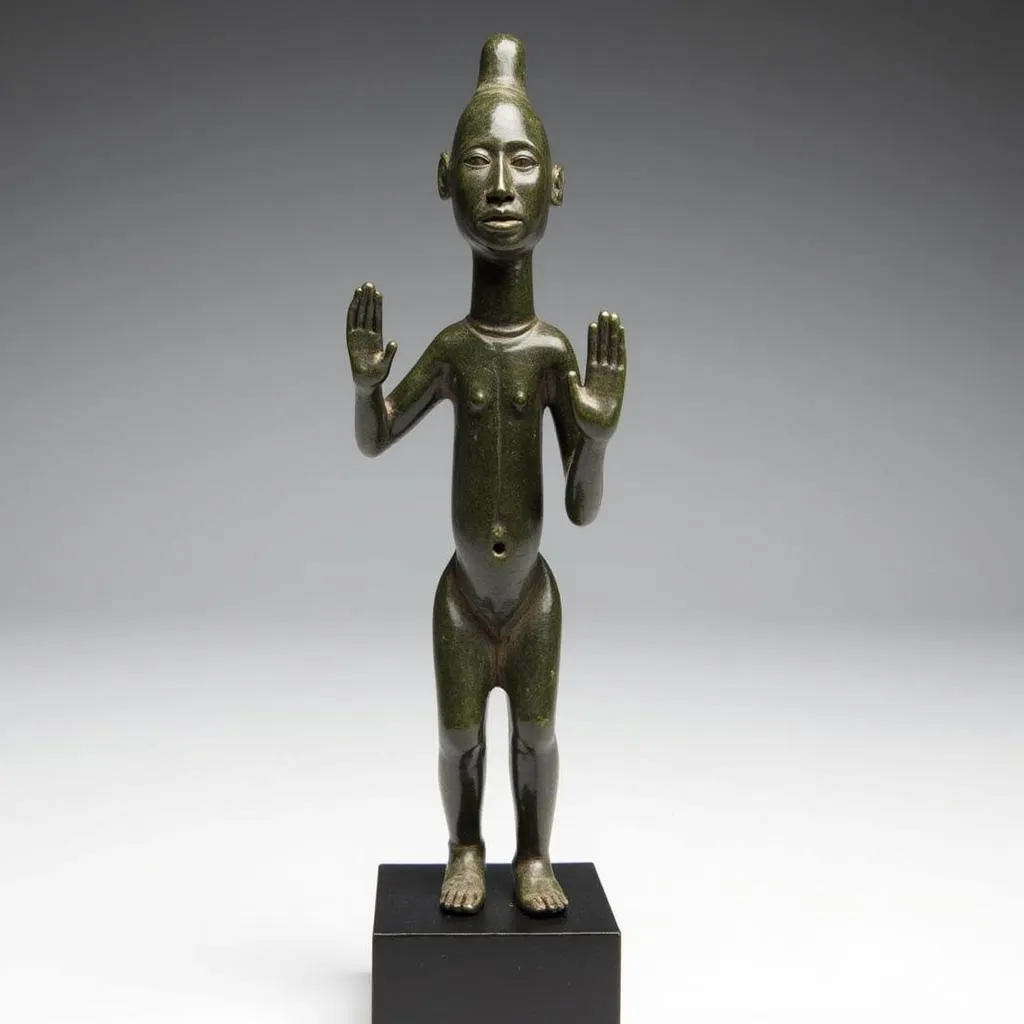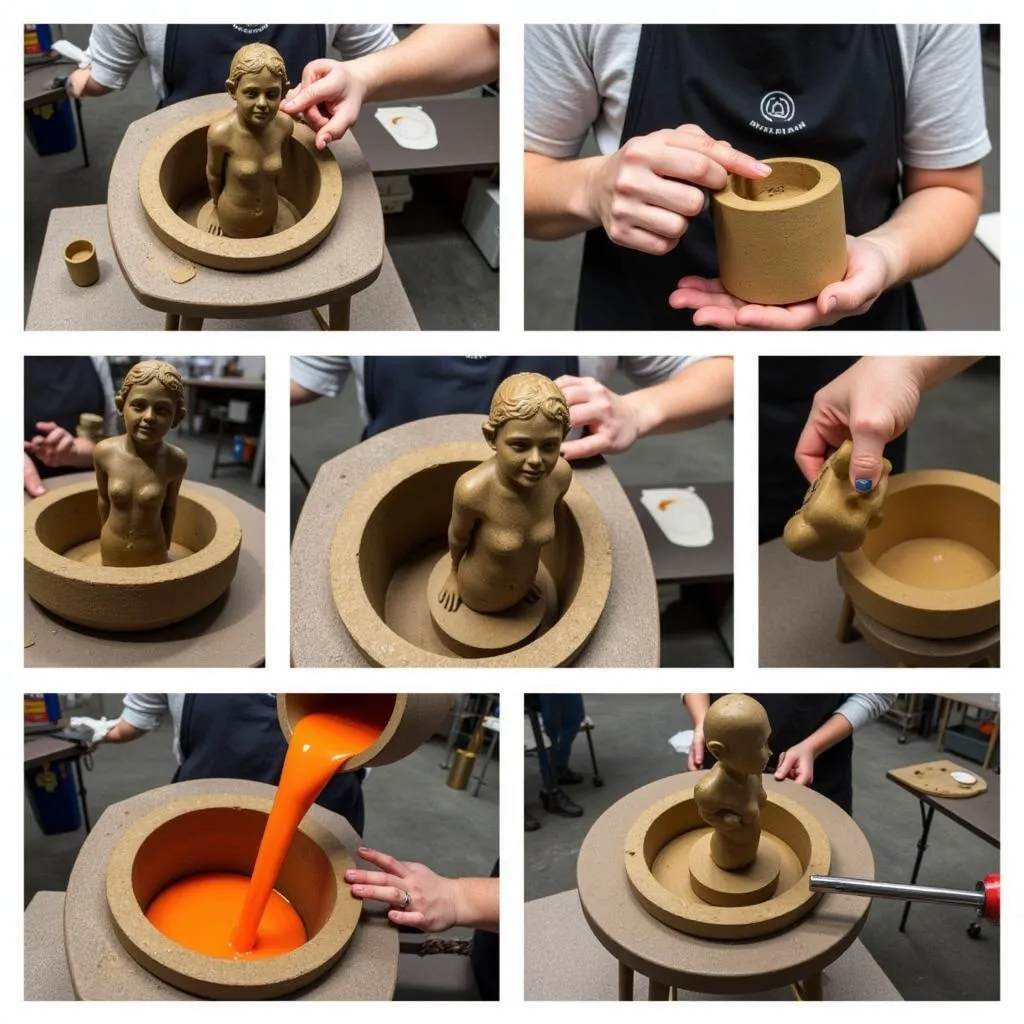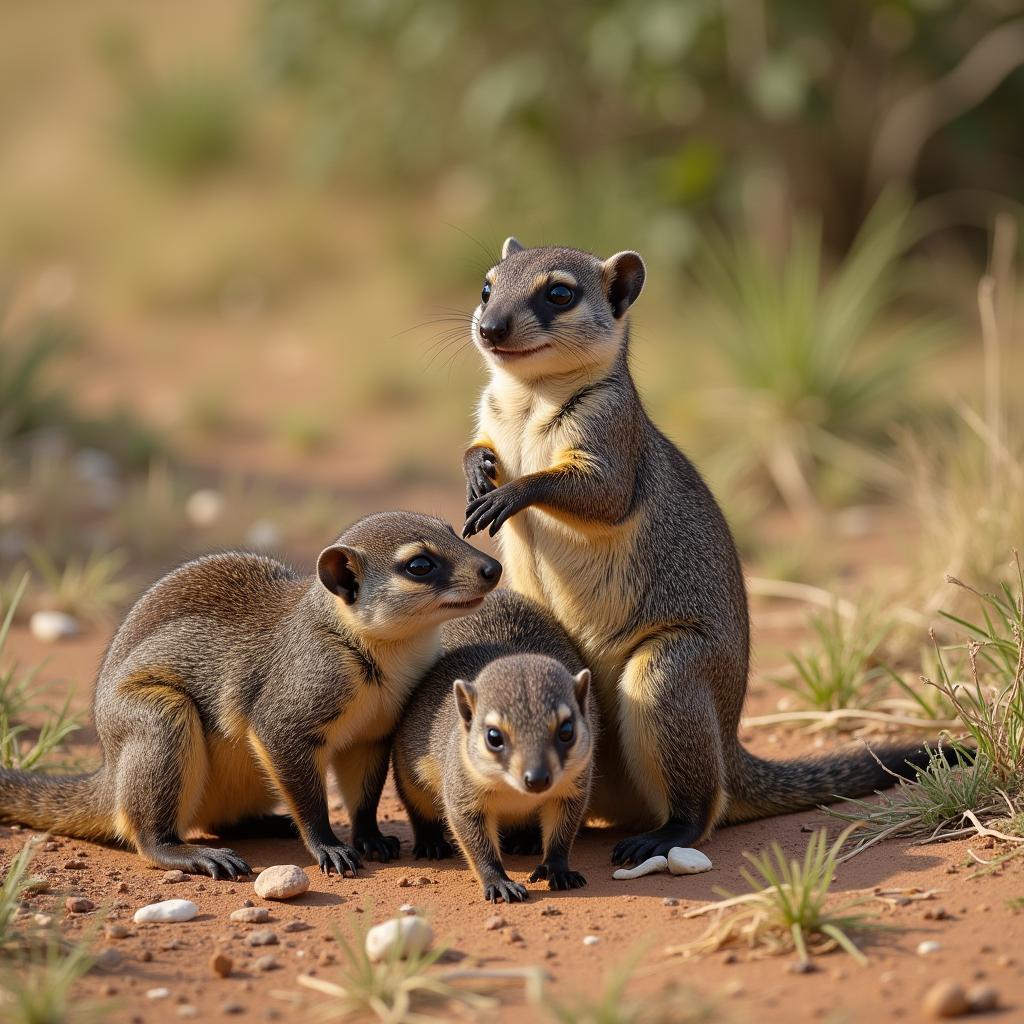African Bronze Statues: A Journey Through History, Art, and Culture
For centuries, African Bronze Statues have captivated the world with their intricate details, powerful symbolism, and enduring beauty. More than just decorative objects, these sculptures offer a glimpse into the rich history, spirituality, and artistic traditions of diverse African cultures. From the Benin Bronzes of Nigeria to the Dogon figures of Mali, African bronze statues continue to inspire awe and ignite the imagination.
The Significance of Bronze in African Art
Bronze, an alloy of copper and tin, holds a special place in African art history. Its durability and versatility allowed artists to achieve remarkable precision and detail, capturing the nuances of human form, animal figures, and abstract concepts. The use of bronze in Africa dates back millennia, with some of the earliest known examples found in Nigeria dating back to the 9th century. While bronze casting techniques likely originated in the Middle East, African artisans developed their own unique styles and methods, elevating bronze casting to an art form in its own right.
Unveiling the Stories Behind the Sculptures
African bronze statues are far more than mere representations; they are vessels of cultural memory, spiritual beliefs, and societal values. Each piece tells a story – of kings and queens, deities and spirits, ancestors and heroes.
Royal Benin Bronzes: A Legacy in Bronze
The Benin Bronzes, a collection of over a thousand plaques and sculptures, stand as a testament to the artistic prowess of the Edo people of present-day Nigeria. Looted during the British Punitive Expedition of 1897, these bronzes depict the oba (king), courtly life, and significant historical events, providing invaluable insights into the Benin Kingdom’s political and social structures.
Dogon Figures: Connecting to the Cosmos
The Dogon people of Mali are renowned for their distinctive wooden and bronze sculptures, often depicting elongated figures with raised arms. These figures represent ancestors and spirits, playing a vital role in Dogon cosmology and religious practices. The elongated limbs and abstract features evoke a sense of otherworldly connection, reflecting the Dogon’s profound spiritual beliefs.
 Dogon bronze figure with raised arms
Dogon bronze figure with raised arms
African Bronze Statues: A Global Legacy
The impact of African bronze statues extends far beyond the continent’s borders. During the 20th century, these sculptures played a pivotal role in shaping modern art movements, inspiring artists such as Picasso, Matisse, and Brancusi. Today, museums and collectors worldwide recognize the artistic and historical significance of African bronze statues, ensuring their continued preservation and appreciation for generations to come.
Exploring Different Styles and Techniques
From the intricate detail of Benin bronzes to the stylized forms of Baule figures from Côte d’Ivoire, African bronze statues encompass a diverse range of styles and techniques.
-
Lost-wax casting: This ancient method, widely practiced across Africa, involves creating a wax model of the sculpture, encasing it in clay, and then replacing the melted wax with molten bronze.
-
Cire perdue: A French term meaning “lost wax,” this method is essentially the same as lost-wax casting and is often used interchangeably.
 The lost-wax casting process
The lost-wax casting process
- Sand casting: In this technique, the sculpture is molded in sand, and molten bronze is poured into the mold. Sand casting allows for larger sculptures but with less intricate detail compared to lost-wax casting.
Collecting and Appreciating African Bronze Statues
For those captivated by the beauty and history of African bronze statues, building a collection can be a rewarding experience. However, it’s crucial to approach collecting ethically and responsibly. Seek out reputable dealers and auction houses that prioritize ethical sourcing and authenticity.
Questions to Ask When Considering an African Bronze Statue:
-
Origin: Where was the statue made, and by which ethnic group?
-
Age: Is it an antique, a contemporary piece, or a reproduction?
-
Provenance: What is the statue’s history of ownership?
-
Authenticity: Has the statue been verified by experts?
By asking these questions and conducting thorough research, collectors can make informed decisions and contribute to the preservation of these invaluable cultural treasures.
African Bronze Statues: A Timeless Legacy
African bronze statues offer a captivating window into the diverse cultures and rich artistic traditions of the African continent. From their intricate details to their profound symbolism, these sculptures continue to inspire, challenge, and captivate audiences worldwide. By understanding the history, techniques, and cultural significance behind these works of art, we can fully appreciate their enduring beauty and their power to connect us to the past.
FAQs
1. What are African bronze statues typically used for?
African bronze statues serve a variety of purposes, often intertwined with religious beliefs, cultural practices, and social hierarchies. They can represent deities, ancestors, rulers, or important figures, and are used in rituals, ceremonies, or as decorative displays of power and prestige.
2. How can I tell if an African bronze statue is authentic?
Determining the authenticity of an African bronze statue requires expertise. Look for signs of age, such as patina and wear, and consult with reputable dealers or appraisers who specialize in African art.
3. Are there any contemporary artists creating African bronze statues today?
Yes, many talented contemporary artists across Africa continue to draw inspiration from traditional bronze casting techniques, reinterpreting ancient forms and themes in their own unique styles.
Further Exploration
Interested in delving deeper into the world of African art? Explore our articles on African floor statues, African carvings, and African art work to discover more about the continent’s rich artistic heritage.
Need assistance in finding the perfect African bronze statue for your collection?
Contact us at:
Phone: +255768904061
Email: [email protected]
Address: Mbarali DC Mawindi, Kangaga, Tanzania.
Our team is available 24/7 to assist you with any inquiries.
